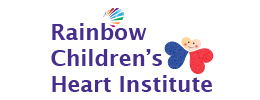Back in time, heart problems were more or less restricted to adults. However, did you know that children are just as prone to developing heart ailments as adults? Heart problems in children can occur as a result of several congenital and acquired factors. However, these problems can be taken care of when diagnosed on time, which is precisely why all parents need to keep a check on the various symptoms of pediatric heart diseases. To help you with that, we have curated a list of the signs and symptoms of heart problems in children that all parents must keep an eye out for.
Signs of Heart Problems In Infants and Toddlers
Research says that one in every 100 babies is born with some heart defect. These defects are referred to as congenital heart defects. These pediatric heart diseases may or may not require treatment, however, you should still keep a check for the symptoms. The most common signs of heart problem in infants include:
- Excessive sweating during feeds
- Losing breath while feeding
- Blue gums and tongue
- Passing out often
- Poor weight gain
- Lung infection
Signs Of Heart Problems In Toddlers
Toddlers, who seem to get tired too often in comparison to other children of their age, have shortness of breath, have slow growth, have trouble while speaking or can’t put their feelings into words can have heart problems. The common symptoms of pediatric heart diseases in toddlers that parents should keep an eye for include:
- Poor development
- Abnormal heart rhythm
- Passing out, although it might be rare
- Seizures that occur as a result of cardiac events
- Fatigue and shortness of breath
Signs Of Heart Problem In Teens
Heart problems in teenagers can occur as a result of congenital as well as several acquired factors. Teenagers can develop conditions such as high blood pressure, high cholesterol and obesity, as a result of various factors including physical inactivity, unhealthy eating habits, smoking, and more. These issues can further lead to an array of heart conditions. Some signs of heart problems in teenagers include:
- Passing out during physical activities
- Arrhythmia
- Excessive shortness of breath
- Chest pain
- Episodes of seizures
What’s next?
If you have noticed any of these symptoms in your child, you must take him/her to Rainbow Children’s Heart Institute, best cardiology hospital in Hyderabad for further diagnosis. Based on your child’s symptoms, your doctor will evaluate the symptoms, ask for any history of heart ailments in the family, and will further recommend certain tests to diagnose the actual problem. The tests maybe as follows:
Blood and urine tests: Your doctor will start by conducting blood and urine tests. These tests can help diagnose heart failure.
Chest X-ray: A chest x ray is performed to monitor the changes in heart and lungs.
Electrocardiography (ECG). This test will show the changes in the heart’s rhythm.
Echocardiography (echo). This test is used to understand the motion in the heart’s chambers and valves. Abnormal results can point towards heart failure and enlarged chambers.
These tests will confirm the problem, so you can further go about with the treatment.
Treatments for Paediatric Heart Diseases
After examining the tests, family history, and the various signs and symptoms, a paediatric cardiologist will tell you the right treatment options. The most common treatments for pediatric heart diseases include:
- Catheterization
Interventional cardiac catheterization refers to the process of repairing heart defects in children without surgically opening the heart. In this procedure, the doctors make use of catheters, which are basically thin plastic tubes via legs or neck. This method offers quick recovery as compared to the traditional surgical method.
- Open Heart Surgery
Some heart conditions may require an open-heart surgery. This is the traditional surgical method of repairing several heart defects, in which incisions are made in the ribs using different instruments.
- Medication
Most paediatric heart diseases can be treated with medicines, which are formulated to enhance the functioning of the heart. The most commonly prescribed medicines include CE inhibitors and angiotensin receptor blockers, Antiarrhythmics, Anticoagulants, Antiplatelets, Beta blockers, and some others.
- Heart Transplant
Certain heart conditions can’t be cured with medicines, catheterization, and surgical methods. In such cases, a heart transplant comes as a necessary, and often the only option.
Based on your child’s condition, a paediatric cardiologist may suggest one, or a combination of the above-mentioned treatments. If your child is suffering from serious congenital heart disease, he/she might require lifelong treatment, and several surgeries over the years to have a healthy and well-functioning heart. In such cases, the parents need to keep a constant check on their child’s health and keep in touch with a paediatric cardiologist during the growth years of your little one.
To know more the treatments, you can consult our experts at Rainbow Children’s Heart Institute, Hyderabad.
